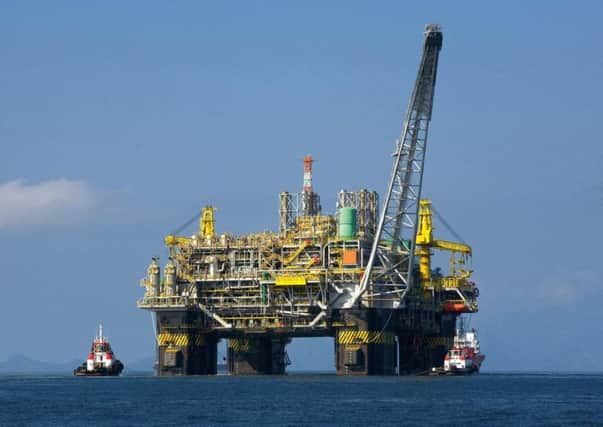North Sea oil and gas to run out in ten years, experts warn


A study of output from offshore fields estimates that only around 10 per cent of the UK’s original recoverable oil and gas remains – about 11 per cent of oil and nine per cent of gas resources.
The research, by scientists at the University of Edinburgh, has also found that fracking will be barely economically viable in the UK, especially Scotland, because of complicated geology at potential sites.
Advertisement
Hide AdAdvertisement
Hide AdThe findings mean the UK will soon have to import all the oil and gas it needs, the researchers have warned.
Now they are calling for the UK government to take swift action, before the last remnants run out.
They say greater use of renewable energy sources, particularly offshore wind and state-of-the-art solar energy technologies, is needed to replace hydrocarbons.
Study leader Professor Roy Thompson, of the university School of GeoSciences, said: “The UK urgently needs a bold energy transition plan, instead of trusting to dwindling fossil fuel reserves and possible fracking.
“We must act now and drive the necessary shift to a clean economy, with integration between energy systems.
“There needs to be greater emphasis on renewables, energy storage and improved insulation and energy efficiencies.”
The latest study represents a fresh investigation into the country’s oil and gas production and an examination of the UK’s likely potential for exploiting unconventional fuels.
Analysis takes into account the long-term downward trends of oil and gas field size and lifespan, alongside the break-even costs for fracking.
Advertisement
Hide AdAdvertisement
Hide AdAnalysis of hydrocarbon reserves shows that discoveries have consistently lagged behind output since the point of peak oil recovery in the late 1990s.
The findings suggest reserves of traditional oil and gas will run out in the next ten years.
But offshore industry leaders have rubbished the claims.
Estimates from the Oil & Gas Authority suggest there are up to 20 billion barrels of offshore oil and gas still to be recovered on the UK continental shelf.
“Production has increased over the last two years and we expect that to continue to rise,” said Deirdre Michie, chief executive of the trade association Oil & Gas UK.
“Nine new fields began production in 2016 and a further seven started producing in the first half of this year – most of which will still be producing in 2030. A further 12 are due on-stream by the end of next year. Some notably large developments will still be producing towards 2050.
“Advances in technologies are also presenting fresh opportunities and helping make discoveries commercially viable.”
The Scottish Government has also disputed the findings, saying offshore oil and gas has a “bright future”.
A spokeswoman said: “The basin has up to 20 billion barrels of oil equivalent remaining – and this year has seen one of the biggest new discoveries of untapped oil in recent times.”
Advertisement
Hide AdAdvertisement
Hide AdScottish Labour economy spokeswoman Jackie Baillie said the report is “worrying”.
Fracking, or hydraulic fracturing, involves injecting a mix of water and chemicals at high pressure into underground rock formations to extract oil and gas trapped within. It has sparked a shale gas boom in the US and a rush to replicate the move as North Sea reserves run out.
The latest research backs up recent warnings by Professor John Underhill, chief scientist at Heriot-Watt University, who highlighted how the UK’s “deformed” geology is likely to prove a major barrier to harvesting unconventional oil and gas.
He says folds and faults in rock formations deep underground, caused by movements of the earth’s tectonic plates millions of years ago, mean places identified as harbouring substantial shale oil and gas reserves may be unsuitable for commercial drilling.
“The inherent complexity of the sedimentary basins has not been fully appreciated or articulated and, as a result, the opportunity has been overhyped,” he said.
A moratorium on fracking has been in place in Scotland since 2015 in response to environmental concerns, with a final decision from the Scottish Government due before the end of this year.